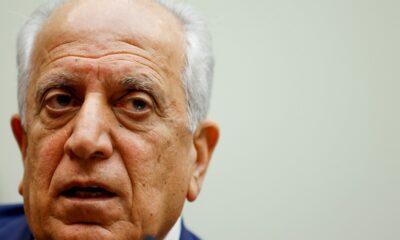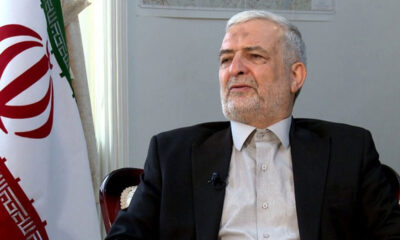World
Eight Israeli soldiers killed as fighting continues in Rafah
The armed wing of Hamas said the vehicle had been trapped in a prepared minefield that set off the explosion.
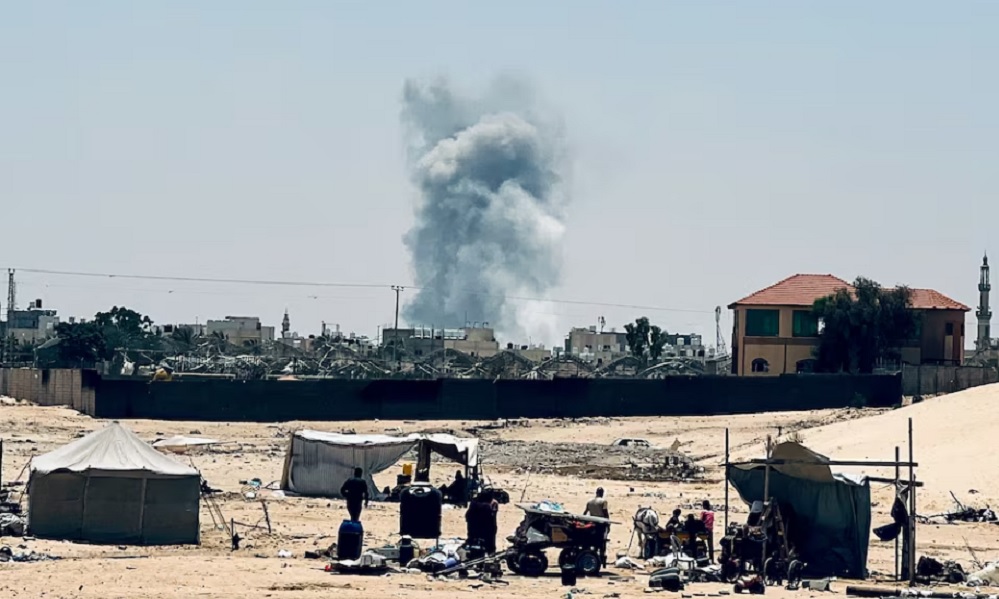
Eight Israeli soldiers were killed in the southern Gaza Strip on Saturday, the military said, as forces continued to push in and around the southern city of Rafah and strikes hit several areas of Gaza, killing at least 19 Palestinians.
The soldiers, all members of a combat engineering unit, were in an armoured carrier that was hit by an explosion that detonated engineering materials being carried on the vehicle, apparently in contravention of standard practice, the military said. It said the early morning incident, in the Tel al-Sultan area in the west of Rafah, was being investigated, Reuters reported.
The armed wing of Hamas said the vehicle had been trapped in a prepared minefield that set off the explosion.
Israeli tanks advanced in Tel al-Sultan and shells landed in the coastal area, where thousands of Palestinians, many of them displaced several times already, have sought refuge.
Despite growing international pressure for a ceasefire, an agreement to halt the fighting still appears distant, more than eight months since the start of the war in October, with the near-daily cross-border exchanges of fire with Hezbollah militia fighters in southern Lebanon intensifying.
In Israeli airstrikes on two houses in Gaza City suburbs, residents said at least 15 people were killed. Four others were killed in separate attacks in the south, medics said.
The Israeli military on Saturday said its forces in Rafah, the southernmost city in Gaza, close to the border with Egypt, had captured large quantities of weapons, both above ground and concealed in the extensive tunnel network built by Hamas.
It said militants had on Friday fired five rockets from the humanitarian area in central Gaza, two of which fell in open areas in Israel and three fell short in Gaza.
"This is a further example of the cynical exploitation of humanitarian infrastructure and the civilian population as human shields by terror organizations in the Gaza Strip for their terrorist attacks," the military said.
PROTESTS
The deaths of the soldiers may complicate the political situation facing Prime Minister Benjamin Netanyahu, a week after centrist former general Benny Gantz quit the government, accusing Netanyahu of having no proper strategy for Gaza.
Tens of thousands of Israelis gathered in Tel Aviv on Saturday in the latest of the now weekly protests by families and supporters of hostages still held by Hamas, demanding an agreement to bring them home.
In a video statement issued late on Saturday, Netanyahu said there was no alternative but to stick to the goals of the war to defeat Hamas and bring the hostages back.
Although surveys show solid support among the Israeli public for continuing the war against Hamas, the protests underscore the divisions in Israeli society that have reopened following a period of unity at the start of the war.
The Islamic Jihad armed wing, Al-Quds Brigades, said on Saturday Israel could only regain its hostages in Gaza if it ended the war and pulled out forces from the enclave.
Islamic Jihad is a smaller ally of Hamas, which led a rampage in southern Israel on Oct. 7 in which 1,200 people were killed and more than 250 taken hostage, according to Israeli tallies. More than 100 hostages are believed to remain captive in Gaza, although at least 40 have been declared dead in absentia by Israeli authorities.
Since a week-long truce in November, repeated attempts to arrange a ceasefire have failed, with Hamas insisting on a permanent end to the war and full Israeli withdrawal from Gaza. Netanyahu refuses to end the war before Hamas is eradicated.
At least 37,296 Palestinians, at least 30 of them in the past 24 hours, have been killed in Israel's military campaign to eliminate Hamas, according to the Gaza health ministry.
Related stories:
UN Security Council backs Israel-Hamas ceasefire plan
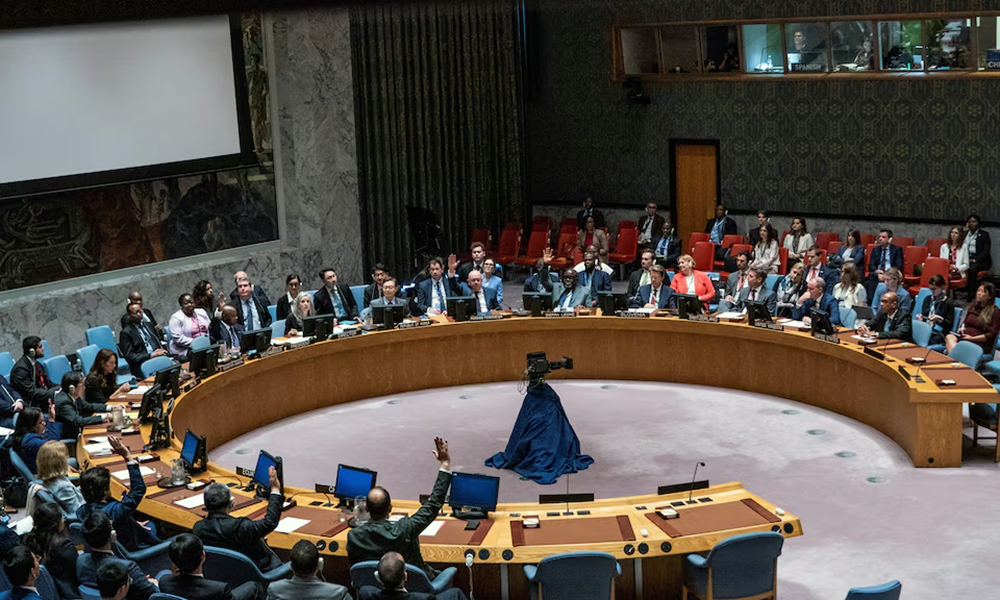
Israel says jets strike school containing Hamas compound, Gaza media says 27 killed
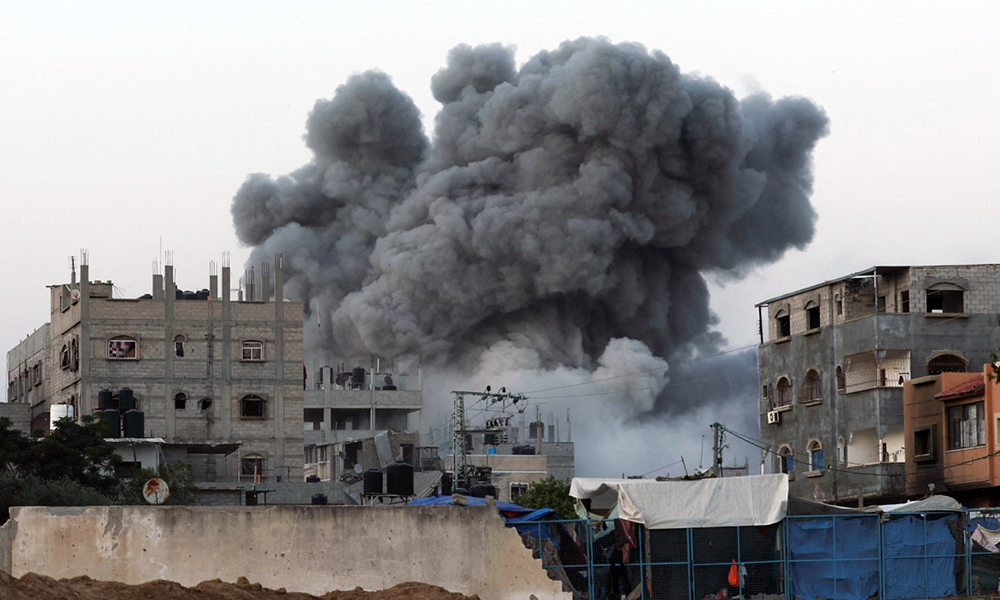
World
Israel strikes Iran military targets amid fears of a wider war
Before dawn, Israel’s public broadcaster said three waves of strikes had been completed and that the operation was over.

Israel said it struck military sites in Iran early on Saturday in retaliation for Tehran's attacks on Israel earlier this month, the latest attack in the escalating conflict between the heavily armed rivals.
Iranian media reported multiple explosions over several hours in the capital and at nearby military bases, but there were no immediate reports of damage or casualties, according to Reuters.
Before dawn, Israel's public broadcaster said three waves of strikes had been completed and that the operation was over.
The Middle East has been on edge awaiting Israel's retaliation for a ballistic-missile barrage carried out by Iran on Oct. 1, in which around 200 missiles were fired at Israel and one person was killed in the West Bank.
Tensions between arch rivals Israel and Iran have escalated since Hamas, the Iran-backed Palestinian militant group based in Gaza, attacked Israel on Oct. 7, 2023. Hamas has been supported by Lebanon-based Hezbollah militants, also backed by Iran.
Fears that Iran and the U.S. would be drawn into a regional war have risen with Israel's intensifying assault on Hezbollah since last month, including airstrikes on the Lebanese capital Beirut and a ground operation, as well as its year-old conflict in the Gaza Strip.
"In response to months of continuous attacks from the regime in Iran against the State of Israel – right now the Israel Defense Forces is conducting precise strikes on military targets in Iran," Israel's military said in a statement.
The military said later that it had completed its "targeted" attacks against military targets in Iran, adding that its planes had safely returned home.
Israel has the right and duty to respond to attacks from Tehran and its proxies, which have included missile strikes launched from Iranian soil, the military said.
Targets did not include energy infrastructure or nuclear facilities, a U.S. official said.
U.S. President Joe Biden had warned that Washington, Israel's main backer and supplier of arms, would not support a strike on Tehran's nuclear sites and has said Israel should consider alternatives to attacking Iran's oil fields.
Iranian authorities have repeatedly warned Israel against any attack.
"Iran reserves the right to respond to any aggression, and there is no doubt that Israel will face a proportional reaction for any action it takes," the semi-official Tasnim news agency said on Saturday, quoting sources.
IRAN PLAYS DOWN STRIKES
Iranian state TV quoted a military spokesman as saying the explosions heard in Tehran were linked "to air defense systems reacting to efforts by the Zionist regime (Israel) to attack three locations outside the city of Tehran."
Videos carried by Iranian media showed air defences continuously firing at apparently incoming projectiles in central Tehran, without saying which sites were coming under attack.
The semi-official Iranian Fars news agency said several military bases in the west and southwest of Tehran had also been targeted.
Tasnim said Islamic Revolutionary Guard Corps bases that were attacked were not damaged.
A spokesperson for Iran's Civil Aviation Organization said flights on all routes were cancelled until further notice, state news agency IRNA reported.
Neighbouring Iraq also suspended flights in all of its airports until further notice, its state news agency said.
Israel targeted some military sites in Syria's central and southern parts with airstrikes early on Saturday, Syrian state news agency SANA reported. Israel has not confirmed striking Syria.
U.S. INFORMED AHEAD OF STRIKES
Israel said Prime Minister Benjamin Netanyahu, Defense Minister Yoav Gallant and other security officials were closely following the operation at the military's command and control centre in Tel Aviv.
Gallant spoke to U.S. Defense Secretary Lloyd Austin shortly after Israel's response began, a U.S. defence official said.
The United States was notified by Israel ahead of its strikes on targets in Iran but was not involved in the operation, another U.S. official told Reuters.
U.S. Secretary of State Antony Blinken, in the Middle East for another attempt to broker a peace deal, said on Wednesday Israel's retaliation should not lead to greater escalation.
Even as it sought to convince Israel to calibrate its strikes, the United States moved to reassure its closest ally in the Middle East that it would aid in its defence should Tehran decide to stage a counter-attack.
This included Biden's decision to move the U.S. military's THAAD anti-missile defences to Israel, along with about 100 U.S. soldiers to operate them.
World
Israeli strike kills three journalists in south Lebanon
The journalists killed were camera operator Ghassan Najjar and engineer Mohamed Reda of the pro-Iranian news outlet Al-Mayadeen and camera operator Wissam Qassem, who worked for Hezbollah’s Al-Manar, the outlets said in separate statements.
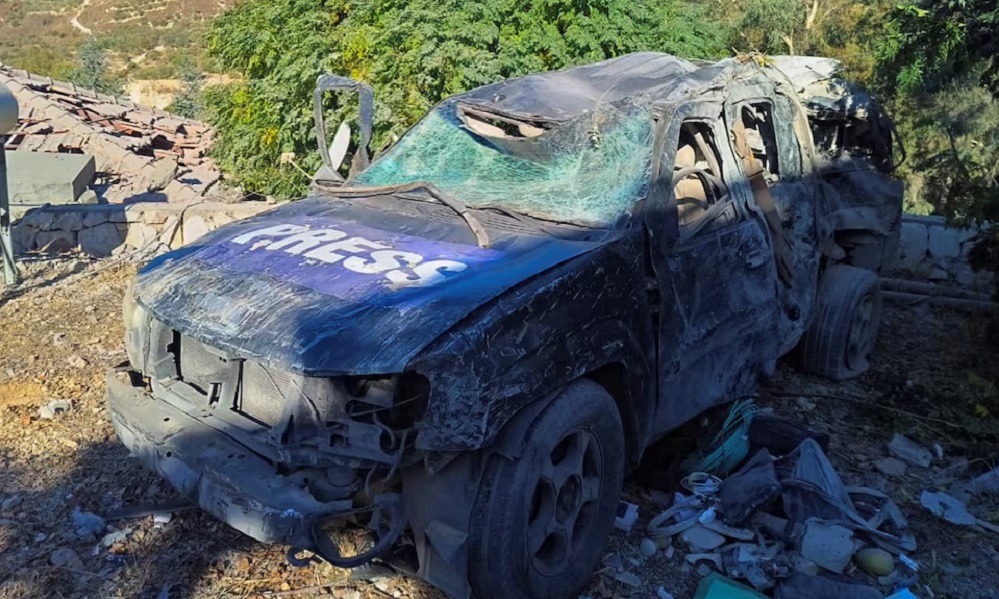
An Israeli strike killed at least three journalists and wounded several others as they slept in guesthouses in southern Lebanon on Friday, Lebanon's health ministry said, in what Beirut declared a war crime.
U.S. Secretary of State Antony Blinken said there was an urgency to get a diplomatic resolution to the conflict in Lebanon, a day after he said Washington did not want to see a protracted campaign there by its ally Israel, Reuters reported.
Israel launched its major offensive in Lebanon a month ago, saying it was targeting the heavily armed, Iran-backed Hezbollah to secure the return home of tens of thousands of Israelis evacuated from the north due to cross-border rocket attacks.
Beirut authorities say the offensive has killed more than 2,500 people and displaced more than 1.2 million people, the majority of them over the last month, creating a humanitarian crisis.
"We have a sense of real urgency in getting to a diplomatic resolution and the full implementation of UN Security Council Resolution 1701, such that there can be real security along border between Israel and Lebanon," Blinken said in London.
He said it was important so "people at both sides of the border can have the confidence to... return to their homes".
The journalists killed were camera operator Ghassan Najjar and engineer Mohamed Reda of the pro-Iranian news outlet Al-Mayadeen and camera operator Wissam Qassem, who worked for Hezbollah's Al-Manar, the outlets said in separate statements.
They had been staying in the southern town of Hasbaya when it was hit around 3 a.m. (midnight GMT). The town, inhabited by both Muslims and Christians, had not previously been targeted.
It was the deadliest attack on media in Lebanon since hostilities erupted between Israel and Hezbollah just over a year ago, prompted by the Gaza war.
There was no immediate comment from Israel, which in general denies deliberately attacking journalists.
World
US says evidence shows North Korea has troops in Russia, possibly for Ukraine war
US says evidence shows North Korea has troops in Russia, possibly for Ukraine war
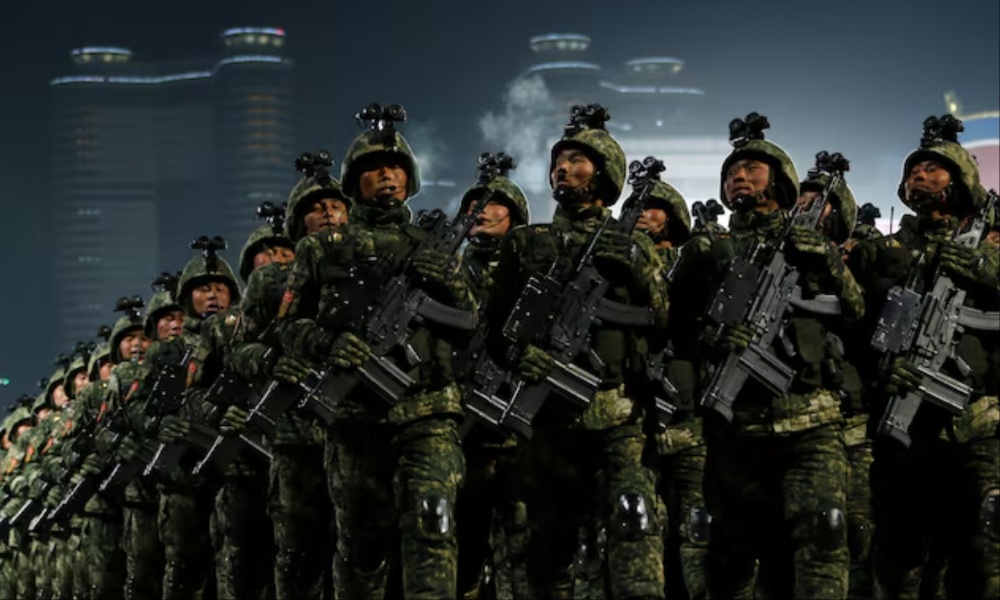
The United States said for the first time on Wednesday that it had seen evidence that North Korea has sent 3,000 troops to Russia for possible deployment in Ukraine, a move that could mark a significant escalation in Russia's war against its neighbor.
U.S. Defense Secretary Lloyd Austin, speaking in Rome, said it would be "very, very serious" if the North Koreans were preparing to fight alongside Russia in Ukraine, as Kyiv has alleged. But he said it remained to be seen what they would be doing there, Reuters reported.
"There is evidence that there are DPRK troops in Russia," Austin told reporters, using North Korea's formal name, the Democratic People's Republic of Korea.
Speaking to reporters later on Wednesday White House spokesperson John Kirby said the United States believes at least 3,000 North Korean troops are undergoing training at three military bases in eastern Russia.
The U.S. determined the North Korean soldiers were transported by ship in early-to-mid October from North Korea's Wonsan region to the eastern Russian city of Vladivostok before being taken to three military training sites in eastern Russia, said Kirby.
"If they do deploy to fight against Ukraine, they're fair game," he said. "They're fair targets and the Ukrainian military will defend themselves against North Korean soldiers the same way they're defending themselves against Russian soldiers."
In Seoul, South Korean lawmakers said that Pyongyang had promised to provide a total of about 10,000 troops, whose deployment was expected to be completed by December, the lawmakers told reporters after being briefed by South Korea's national intelligence agency.
"Signs of troops being trained inside North Korea were detected in September and October," Park Sun-won, a member of a parliamentary intelligence committee, said after the briefing.
The Ukraine conflict broke out when Russia invaded its neighbor in February 2022 and has since developed into a war of attrition largely fought along front lines in eastern Ukraine, with huge numbers of casualties on both sides.
The United States said the alleged North Korean deployment could be further evidence that the Russian military was having problems with manpower.
The Kremlin has previously dismissed Seoul's claims about the North's troop deployment as "fake news" and a North Korean representative to the United Nations in New York called it "groundless rumors" at a meeting on Monday.
Both Moscow and Pyongyang have also denied weapons transfers, but they have pledged to boost military ties and signed a mutual defense treaty at a summit in June.
-

 Sport4 days ago
Sport4 days agoAfghanistan A make ACC Emerging Asia Cup semis despite Hong Kong’s win
-
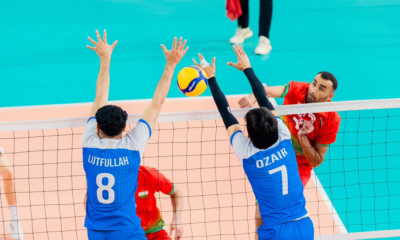
 Sport4 days ago
Sport4 days agoAfghanistan volleyball team tumbles 3-2 to Tajikistan
-

 Sport4 days ago
Sport4 days agoACB names squad for Afghanistan’s ODI series against Bangladesh
-

 Latest News5 days ago
Latest News5 days agoAfghanistan’s wheat production for this year up by 10%
-

 Latest News5 days ago
Latest News5 days agoGhazni dam project underway after initial survey conducted
-
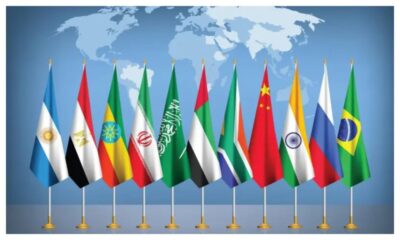
 Latest News5 days ago
Latest News5 days agoBRICS summit gets underway in Kazan, Russia
-

 Health4 days ago
Health4 days agoAIJU seals deal with private hospital for Afghan media workers
-

 Latest News3 days ago
Latest News3 days agoWife of late boxing legend Mohammad Ali to visit Kabul






